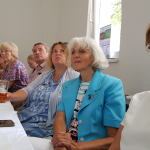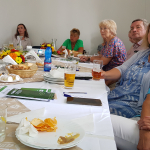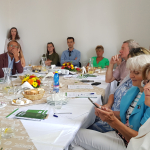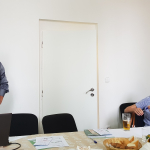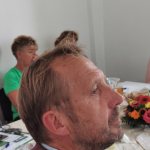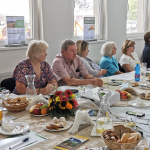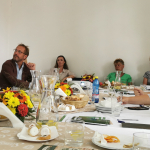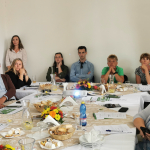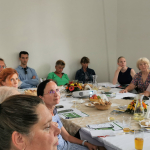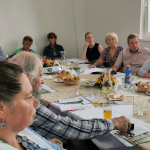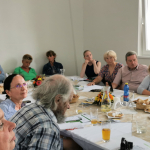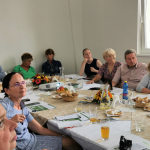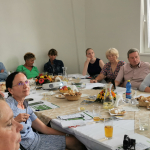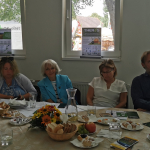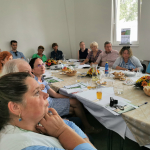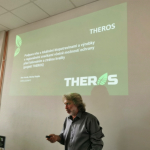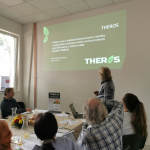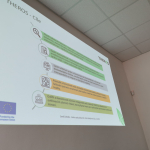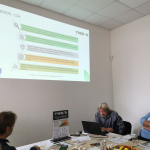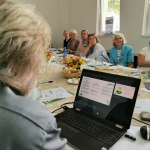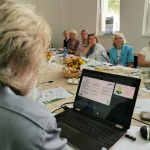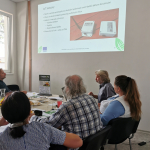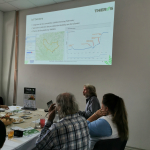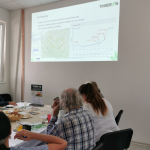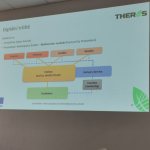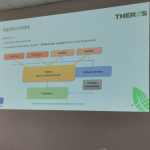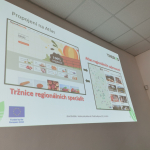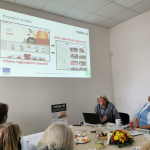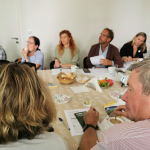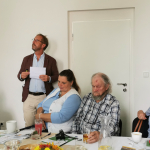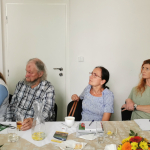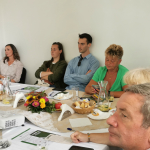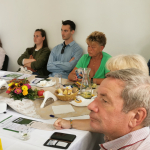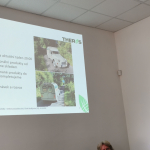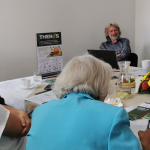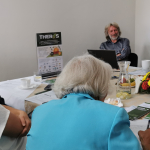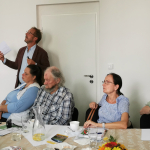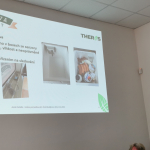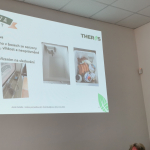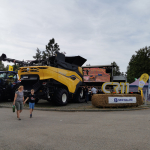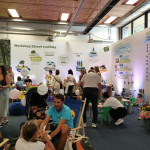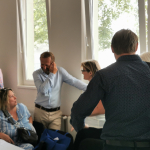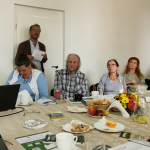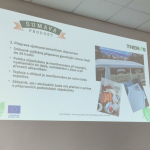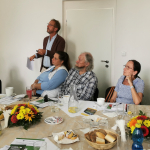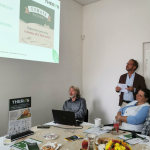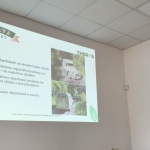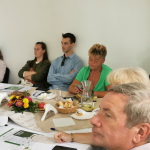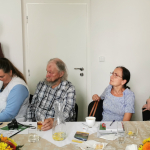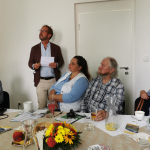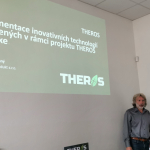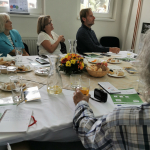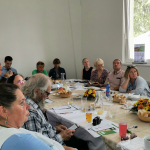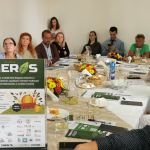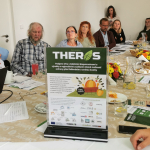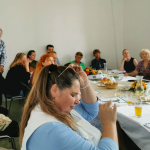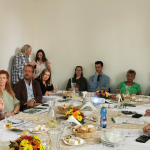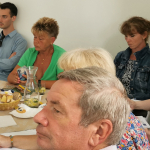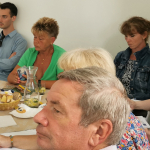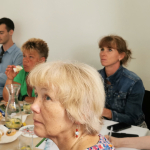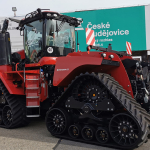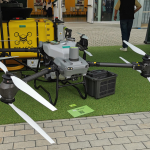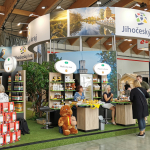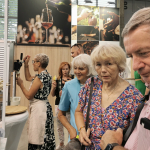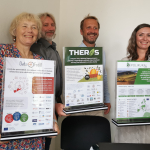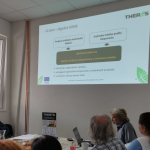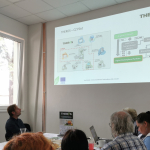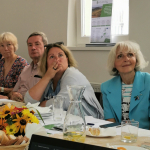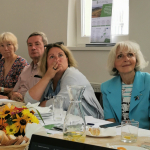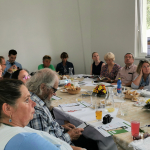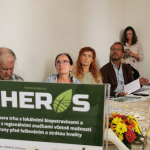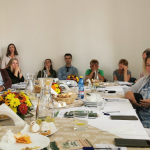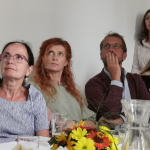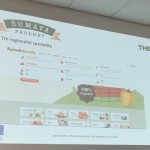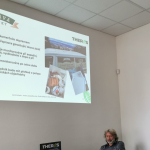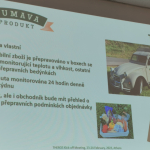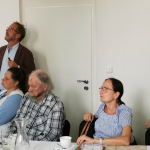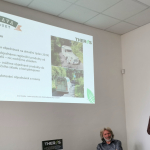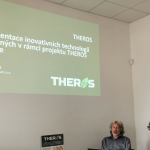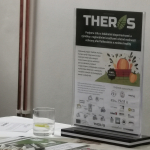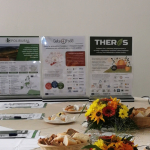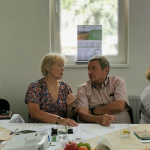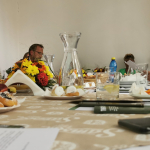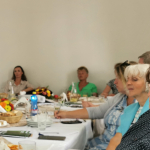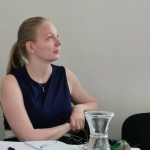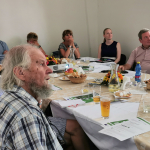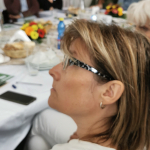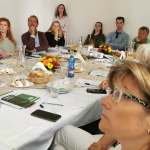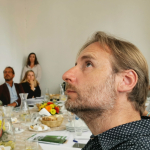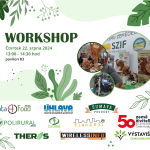
THEROS workshop was organized by WirelessInfo as part of the Země Živitelka agricultural exhibition on August 22, 2024, in České Budějovice, Czech Republic.
The workshop was entitled “Countryside under data fire”, and it was focused on the presentation of the THEROS project, its goals, technological implementations, and practical applications!
The meeting commenced with Petr Horák, from WIRELESSINFO, introducing the project, THEROS, which aims to support the market with local bio-foods and regional brand products, while also protecting against fraud and loss of quality. Petr elaborated that the project is primarily focused on limiting fraud and defraudation of protected products and pushing towards a specific result that would be beneficial for the region. The vision of the project is to create and verify an integrated set of tools for modernizing the process of verifying bio-foods and other products with quality marks.
Following this, Petr reiterated that the project has 17 partners from six countries, including WIRELESSINFO and Šumavaprodukt, and that it is currently at its halfway point of the 36-month duration, set to conclude next December. Petr then outlined the goals of the project, which include improving the disclosure and falsification of incompatibility of organic foods, effective monitoring of quality parameters, and the sustainability of low-cost, digital, and scalable solutions. Additionally, the project aims to enhance visibility in the supply chain and ensure effective communication and harmonization of data collected from various phases of the supply chain.
Petr further explained that the project seeks to formulate new business-oriented models and approaches to prevent food fraud and to verify and demonstrate the effectiveness of integrated sets of ingredients, including four verifying pilot solutions. The expected benefits of the project include increased analytical and preventive capacity of the system, more real-time checks with automated data processing, prevention of fraud, and the protection of labels. The project also aims to improve monitoring of the relationship and results of food stamps and provide a more precise and reliable assessment of environmental impact.
The innovation potential of the project includes ensuring falsification, maintenance of parameters, reporting, harmonization of data, interoperability, observability, transparency, and safety. Petr mentioned that there are four pilot implementations, each focused on a different sector. In Serbia, the focus is on the implementation of instruments for the control sphere, where they test the monitoring of individual products within control institutions. In Greece, the aim is to create a digital system for better monitoring and transparency of genetic factors in the production of bio-foods. In Spain, the focus is on the preparation of main marking and proper processing of individual products. In the Czech Republic, the project aims to improve transparency, digital sales, e-commerce through new business models, and quality monitoring.
Petr detailed the technological concept of the project, which is based on blockchain technology for verifying information through a central system. The Czech pilot involves two main tools: a sensor network implemented into transport boxes to monitor the conditions of specific foods, and the creation of a digital market that allows access to various producers of bio-foods and certified products. The sensor network monitors air humidity, temperature, and the integrity of the package, with data being stored on central servers through a product called SensLog. The data is then transferred to the THEROS platform and can be sent to other systems.
Petr explained that the digital marketplace supports short-term businesses and increases the market share of biofuels by providing a platform for regional and local producers. The marketplace allows multiple suppliers to register and sell their products, with an administrator managing the platform. The project also aims to monitor the delivery of services and expand beyond biofruits and protected brands after the project’s conclusion. The digital market is hosted on the hardware of the partner company Lesprojekt-služby and shares space with other open-source solutions.
Petr concluded by emphasizing the integration of new solutions such as sensors and verification of goods, and the expansion of the platform to include more suppliers and ensure real-time monitoring and secured quality. Petr then invited Tomáš Zelený to discuss the practical aspects of the project. Tomáš introduced himself as Tomáš Zelený, the founder of Šumavaprodukt, and provided a brief history of the company, which was founded in 2012 and transitioned to online sales during the COVID-19 pandemic. Tomáš explained the company’s focus on regional products and the importance of sustainability in their business model.
Tomáš Zelený, from Šumavaprodukt, described their marketing strategies, which include social media, SMS reminders, and monthly newsletters to keep customers informed and engaged. He also highlighted the importance of customer satisfaction and word-of-mouth recommendations. Tomáš then detailed their involvement in the THEROS project, which includes implementing innovative technologies to monitor temperature and humidity during transportation and ensuring the quality of goods. The project aims to increase the availability of certified foods, support local producers, and provide a sustainable business model for the future.
The meeting concluded with a Q&A session, where Tomáš answered questions about the practical implementation of the project and the monitoring technologies used. The next steps include continuing the implementation of innovative technologies, ensuring the integration of blockchain technology in the Czech pilot, expanding the digital marketplace, and preparing a business model for long-term sustainability. The meeting ended with a commitment to review the progress of the THEROS project and discuss updates on pilot implementations in the next meeting.
The presentation is available here.
The meeting was attended by over 20 participants from various organizations, interest associations, the Ministry of Agriculture of the Czech Republic, the Technology Center of the Czech Republic, municipalities, Czech agricultural university, Local Action Groups, representatives of tourist areas and other trade unions.
PHOTO GALLERY



